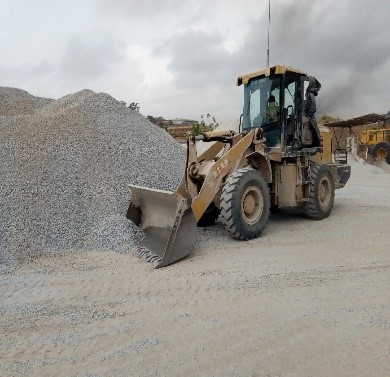Scientists at the CSIR-Building and Road Research Institute (CSIR-BRRI), Kumasi and the KNUST School of Public Health and the University of Washington, Seatle, are calling for upward readjustment of Ghana EPA permissible noise level for heavy industrial areas.
The recommendation comes at the back of research which found the ambient noise permissible limit at 70 dBA to be unrealistic.
A-weighted decibels, or “dBA,” are often used when describing sound level recommendations for healthy listening. While the dB scale is based only on sound intensity, the dBA scale is based on intensity and on how the human ear responds.
The cross sectional study, conducted in the Ashanti and Ahafo regions, was aimed at establishing the occupational noise exposure levels of carpenters and operators of concrete mixers, bulldozers, excavators, among others.
The noise measuring tool known as dosimeter was mounted on a worker’s clothing at the shoulder level to monitor the noise exposure level for each specific task executed.
They found the bulldozer produced the highest average daily noise exposure level and small steel rollers produced the least. All the nine worker groups monitored with the noise dosimeter were exposed to mean noise levels exceeding the Ghana EPA permissible limits by between 10.1dBA and 23.6dBA.
The operators of bulldozer, asphalt-producing plant, concrete mixer, pneumatic tyre roller, carpenters, pay-loader, excavator, steel roller and small steel roller were exposed to average daily personal noise exposure levels of 93.6dBA, 92.4dBA, 87.9dBA, 87.3dBA, 86.4dBA, 86.2dBA, 85.6dBA, 81.5dBA and 80.1dBA respectively.
The peak noise pressure levels from all the equipment exceeded the limits of Ghana EPA (by 50.7dBA–72.6dBA), ISO/NIOSH (by 35.7dBA–57.6 dBA) and OSHA (by 30.7dBA– 52.6dBA). The highest was recorded from the bulldozer, followed in that order by the carpenters, excavator, pneumatic tyre roller, asphalt-producing plant, pay-loader, concrete mixer, small steel roller and steel roller.
“It’s obvious from the study that the Ghana EPA permissible limits for heavy industrial areas, where road construction falls set at 70dBA during night and day is unrealistic,” said the lead researcher at the CSIR-BRRI and Occupational Hygienist, Isaac Kofi Yankson.
The scientists which included researchers from the Komfo Ankoye Teaching Hospital, University of Washington, Seattle and Ghana Health Service, however say, the recommended noise level does not pre-dispose unprotected workers to noise-induced hearing loss over an 8-hour working period.
Mr. Yankson advises owners of construction companies to provide welfare facilities such as pre-employment and in-service medical monitoring.
Latest Stories
-
REMAPSEN celebrates 5 years of championing health and environmental awareness across Africa
2 hours -
I served with diligence and honesty; I am willing to defend my NSS tenure in court – Mustapha Ussif
3 hours -
Afenyo-Markin challenges Ahiafor’s sub judice ruling, calls it ‘dangerous precedent’
5 hours -
Mahama instructs Armed Forces to escort all vehicles in Bawku area
5 hours -
African artists, global awards, and the fight for visibility
5 hours -
This Saturday on Newsfile: GRNMA strike, ORAL probe into NSA, shut down of 64 radio stations
5 hours -
19 arrested in raid on drug and robbery dens at Kasoa Dominase, Onion Market
6 hours -
Luv FM High Schools Debate heats up as top schools advance to Round of 16
6 hours -
Asantehene urges chiefs to offer lands as equity for farming
6 hours -
GhanaFest Alberta 2025 launch ignites diaspora business momentum
6 hours -
22-year-old hearing-impaired man allegedly dies by suicide after rape accusation
7 hours -
CAETE 2025: MDF seals 10k jobs deal with China’s Yixintai Group
7 hours -
Climate Change: AGN Chair emphasises importance of Africa’s unity in global negotiations
7 hours -
TV stations risk prosecution over pirated content – Copyright Office warns
7 hours -
Anointed Engineering donates ‘Borla Macho III’ tricycle to support sanitation drive in Accra
8 hours

